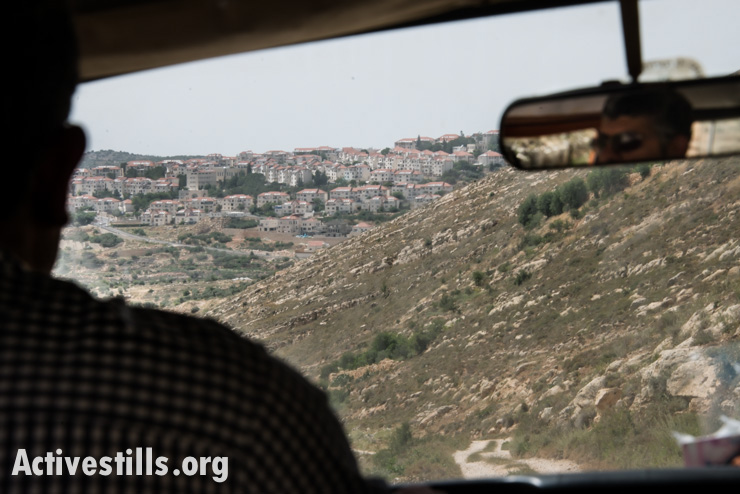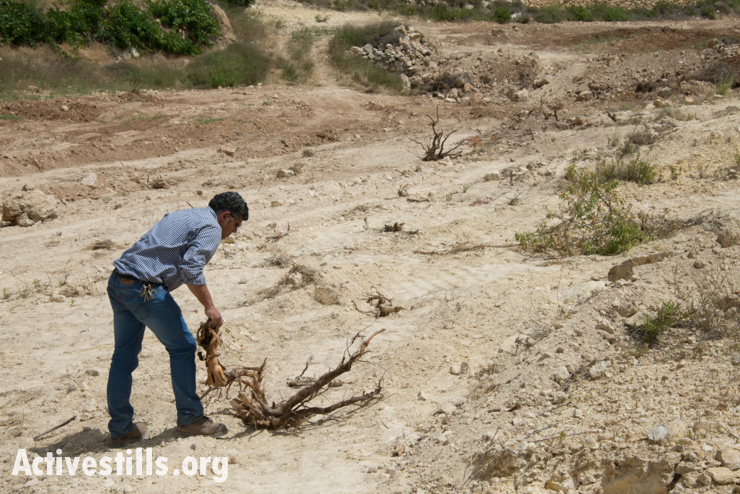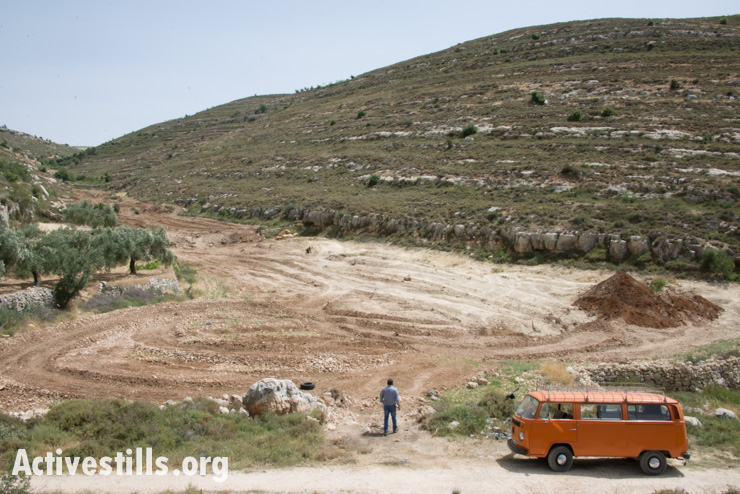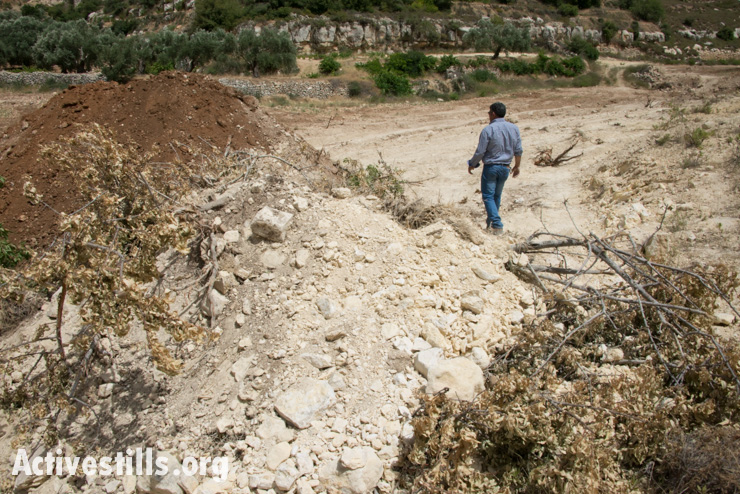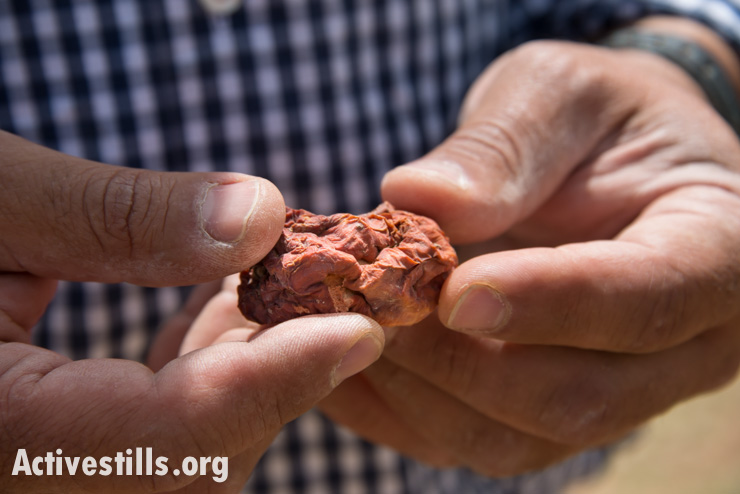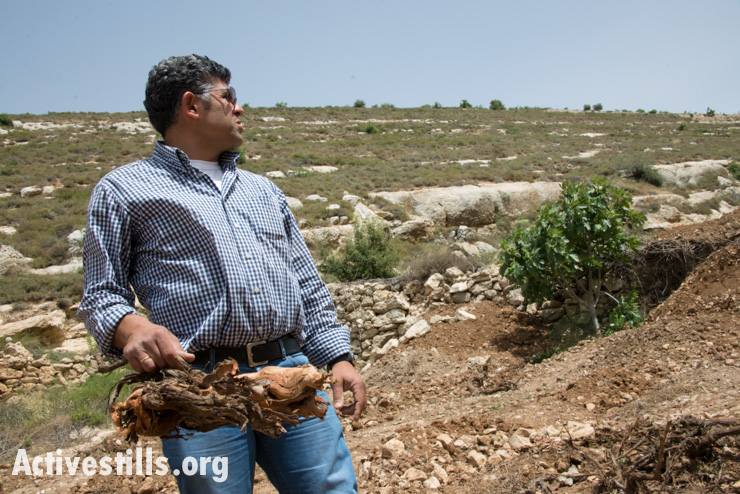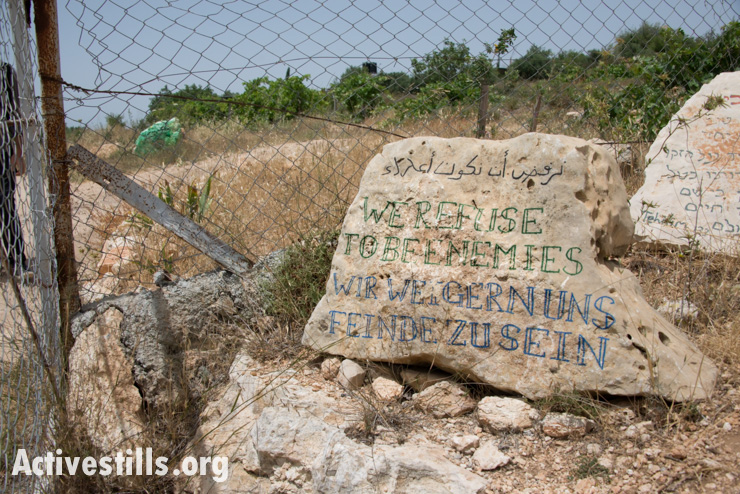Israeli authorities destroyed some 1,500 fruit trees on a Palestinian farm near Bethlehem. The family has ownership documentation dating back to the Ottoman period.
Text and photos by: Ryan Rodrick Beiler/Activestills.org
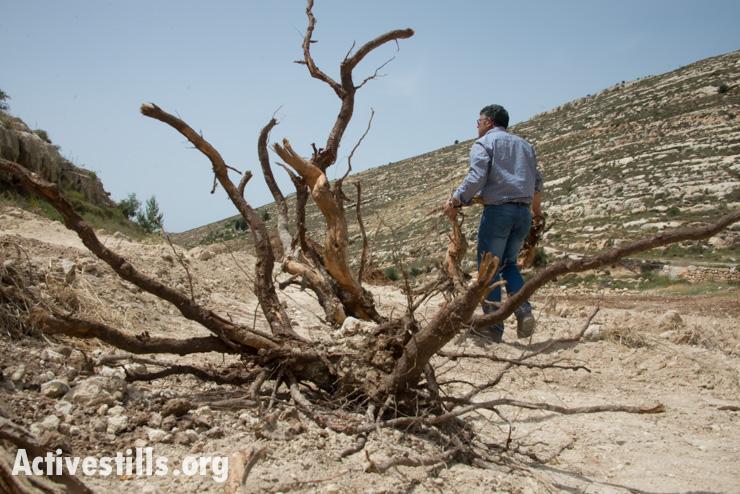
The sign at the entrance to the Nassar family farm reads, “We refuse to be enemies.” In 2000, they named their land Tent of Nations and launched a program “to bring people of various cultures together to build bridges of understanding, reconciliation, and peace.” They invite youth from around the world, especially from areas of conflict, together for face-to-face interactions and host solidarity movements, churches, youth organizations, and tourist groups, each year—many of whom come to volunteer on the farm. Though they’ve been fighting a legal battle to resist confiscation of their land by Israeli authorities since 1991, they welcome anyone to visit.
“As humans, we’re willing to meet with anyone,” says Daoud Nassar, noting that their visitors often include internationals and Israeli Jews who are being exposed to the realities of the Israeli occupation for the first time. “But this is not peace,” he says, emphasizing that dialogue alone is not enough when one side holds all of the power.
That power dynamic was graphically displayed as Nassar walked through his family’s valley of some 1,500 mature fruit trees that had been destroyed a few weeks previous by Israeli authorities. Their groves included apricot, almond, fig, and apple trees, as well as grape vines, valued at $150,000 for the trees alone—not factoring the costs of cultivation, laborers, etc.
According to a statement by the family’s lawyer, Sani Khoury, the military claimed that the trees, which had been planted some 10 years previous, were growing on state land and needed to be removed.
The Nassars had filed an appeal with the military court, asserting that the Israeli Supreme Court had already declared that the family should continue with the “re-registration” process of their land for which they have ownership documentation dating back to the Ottoman period. This “re-registration” process has been dragging on for decades, with the Israel Military Land Registrar delaying the process endlessly without explanation.
According to Khoury, no demolition or evacuation can legally take place before a final verdict once an appeal is filed. But though their appeal was filed on May 12, and no verdict had been issued, the authorities bulldozed the land a week later on May 19.
The family is filing a lawsuit against the military demanding compensation for the damages.
